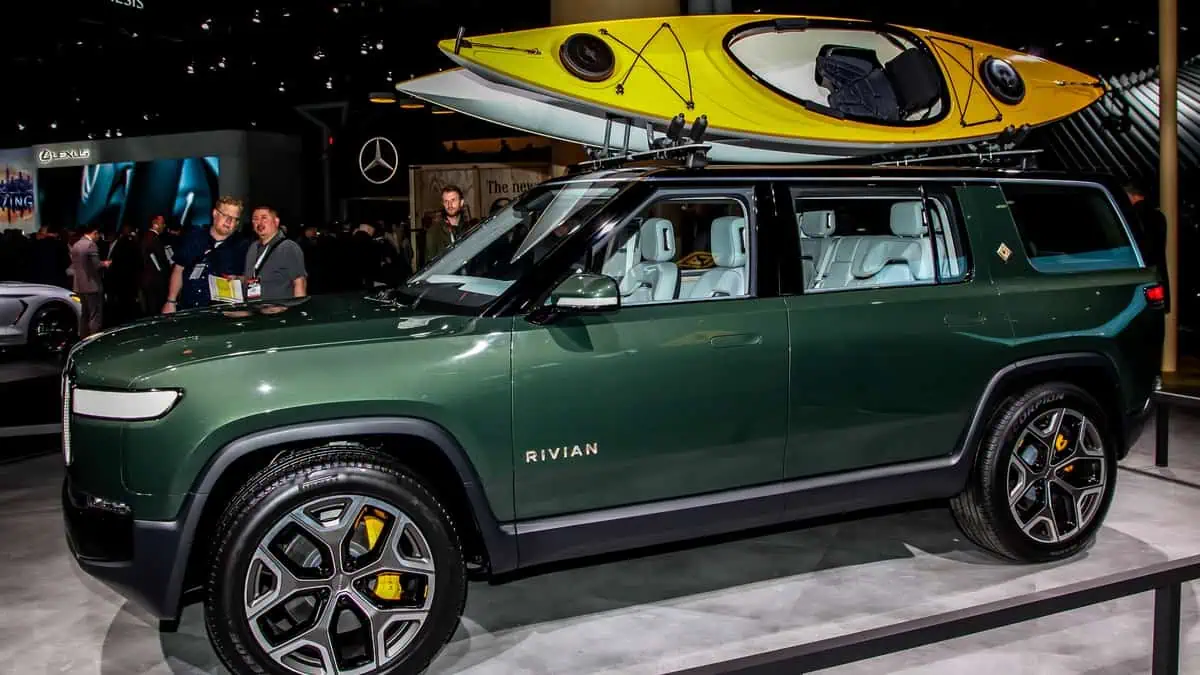The manufacturer of electric pickup trucks, vans, and sport-utility cars announced marginal increase of its manufacturing prediction for 2022.
On Thursday, a young electric car maker, Rivian, stated that it lost $1.7 billion in the 2nd quarter and approximated that it would make more than 26,000 cars in 2022, about a thousand more than it previously estimated.
The firm stated it was continuing to struggle to get enough parts to boost manufacturing to higher levels.
“Supply chain continues to be the limiting factor of our production,” the firm stated in a press release. “However, through close partnership with our suppliers, we are making progress.” Rivian also stated it expected to add another production shift toward the end of the third quarter.
Rivian mentioned it produced $364 million in income in a quarter from April to June, up from $95 million in the 1st quarter of 2022. It also stated it had consumer reservations for 98,000 cars at the end of June.
Last month, Rivian said it manufactured 4,401 cars in the 2nd quarter and distributed 4,467 cars to the consumers.
Rivian was once viewed as “the next Tesla,” an electric car manufacturer poised to increase rapidly and unsettle century-old giants of the car industry such as Ford Motor, General Motors, and Volkswagen. It aimed to produce electric pickup and sport-utility car versions that would set it apart from the minimalist electric vehicles, Tesla manufactures.
The firm earned billions of dollars in support from shareholders, including Ford and Amazon, which announced it planned to purchase 100,000 electric delivery vans from Rivian.
The initial public offering of Rivian was the biggest of last year, and within a few days, its stock cost rose. For a time, the market-value of the firm was greater than that of Ford and General Motors combined.
Yet it struggled in sourcing critical chips and with production issues at its factory in Normal, Ill., kept manufacturing far below what the firm had wished for. It has also struggled to produce distribution vans for Amazon. The share cost of Rivian dropped, and stockholders remain worried about the prospects of the firm.
As manufacturing is now rising, it faces a harder competitive landscape. Ford has begun producing the F-150 Lightning, an electric pickup that will possibly hit Rivian in sales by the end of 2022. Ford, Volkswagen, Hyundai, and some others have boosted sales of electric SUVs, and GM has stated it will begin selling an electric mode; of its Chevrolet Silverado pickup and a pair of electric S.U.V.s in 2023.
Some purchasers of Rivian’s cars are also expected to soon have no access to a federal tax break under the climate act that the House is anticipated to approve on Friday. The Senate passed it on Sunday. Under the act, sales of vans, S.U.V.s, and pickups that sell for over $80,000 will not be eligible for tax breaks. The credits will also not be accessible to singles or couples who make over $150,000 or $300,000 a year.
Rivian stated that it was cutting off around 6 % of its 11,500 workers. “To fully realize our potential, our strategy must support our sustainable growth as we ramp towards profitability,” R.J. Scaringe, the firm’s chief executive, stated in a memo to employees. “We need to be able to continue to grow and scale without additional financing in this macro environment.”






